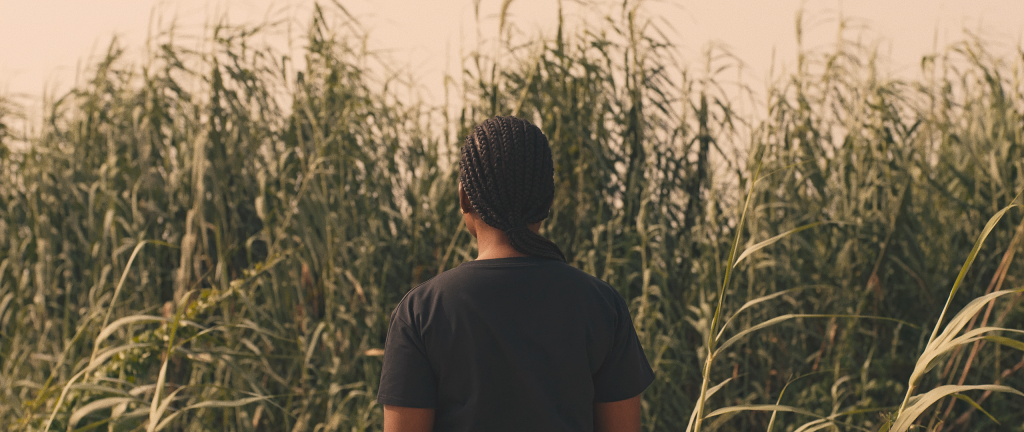Child marriage is an epidemic which has been allowed to sweep through countries like Nigeria, where at least 22 million child brides live today.
To raise awareness, SAGE Foundation is launching a new campaign centring on a short film created by Yassa Khan of Camp Productions and edited by Sam Hopkins, Lead Editor at Engine.
Filmed in Lagos, the poignant film features young girls affected by this traumatic and widespread problem. These child brides, each of whom became mothers before they turned 18, all long to continue their education, but instead they find themselves responsible for a child they don’t know how to raise and answering to a husband they know very little about.
The film also features the women working to abolish the laws that allow this to happen and those who are educating these young women so that they can reclaim their futures.
Directed by Yassa Khan, the film launches on Wednesday, April 6th on The SAGE Foundations Instagram, Facebook and Twitter pages, as well as on YouTube and Vimeo. It will be accompanied by a targeted digital OOH campaign across several prime sites in London, Manchester and Birmingham, the areas of the UK with the highest Nigerian populations.

This is Yassa and Sam’s second collaboration together following the success of their recent music video for Soft Cell & The Pet Shop Boy’s ‘Purple Zone.’
As part of the campaign, SAGE is launching a landmark petition to change legislation and ban child marriage in Nigeria. The petition, hosted via Change.org and launched in partnership with young activists It’s Never Your Fault, aims to reach 500,000 signatures.
The numbers of children forced into marriage show no sign of slowing – with 44% of girls in Nigeria married before their 18th birthday. In Lagos State – considered to be one of Nigeria’s most developed – 44% of girls are married before their 16th birthday, according to the International Centre’s Investigative Report.
A current loophole in legislation currently means that child marriage is allowed to continue lawfully, with no consequence.
Millions of Nigerians take advantage of two conflicting legal clauses every year: Section 23 of the 2003 Nigerian Child Rights Act says, “a person under the age of 18 is incapable of contracting a valid marriage. If such a marriage does take place, it should be declared null and void and of no effect.” Contradicting that, Section 29(4b) of the 1999 Constitution of the Federal Republic of Nigeria says, “any woman who is married shall be deemed to be of full age.” Just a few words allow girls as young as eleven to be forcibly married to men much older than they are, bearing children while they are still children themselves, their lives cut short before they are allowed to begin.

Naza Alakija, Founder & CEO Sage Foundation, says: “At Sage Foundation, we focus on supporting grassroots organisations that elevate and empower women and girls, and ensure they have access to the quality education they deserve.
We are deeply grateful to the brave girls that spoke to us about their experience of child marriage for our film JUST A GIRL. All of them were mothers, even though they were still children themselves. They all deserved a full life of learning and growth but felt it had been cut short and taken away from them. We worked with Bella Foundation to ensure they could go back to their education, but millions of young girls in Nigeria will be unable to return as soon as they become brides. One of the most effective ways to prevent child marriage is to keep girls in school, to allow them to reach their potential, and to show their societies and communities just what remarkable things they are capable of.”






Sam Hopkins, Lead Editor Engine: “‘Just A Girl was a deeply affecting and immersive experience for me, something that I threw myself into. Seeing and hearing what these young girls have to go through is heart-breaking and, as an editor I wanted to help Yassa and SAGE create a powerful and compelling story that would not only raise awareness about the issues these girls face but also, to spur people into taking action and creating change.
Yassa’s approach visually was to create something visceral and contrasting, that would show the brutal and fragile nature of these stories but also ensure you paid attention to every word being said. That gave me the opportunity to really hone in on pacing, shot selection and technique when editing and create something that would do these stories justice. It’s a film and campaign I’m immensely proud to be a part of.”
Source: SAGE Foundation

You must be logged in to post a comment Login